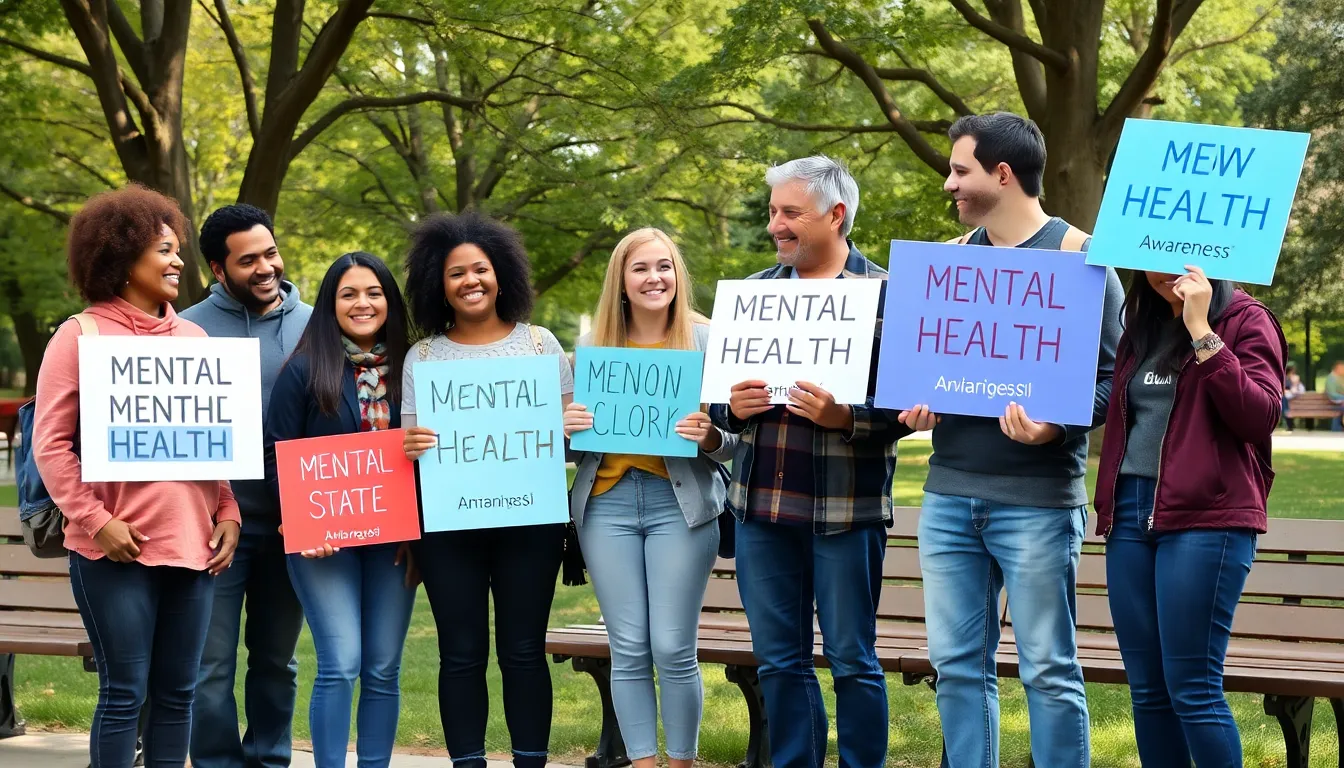Table of Contents
ToggleIn a world where mental health often takes a backseat, mental health donations are like that friend who insists on singing karaoke at the party—essential, a little awkward, but ultimately uplifting. These contributions don’t just help organizations; they bring hope to those who need it most. Imagine turning your spare change into a lifeline for someone battling anxiety or depression. It’s like giving a high-five to mental wellness!
Supporting mental health initiatives isn’t just about charity; it’s about investing in a happier, healthier society. With every dollar donated, you’re not just funding programs; you’re helping break down the stigma surrounding mental health. So, why not put your money where your heart is? Let’s dive into how mental health donations can make a real difference and why your support is more crucial now than ever.
Overview of Mental Health Donations
Mental health donations provide crucial support to professionals and organizations addressing mental health challenges. Such contributions foster a healthier society by targeting the complexities of anxiety, depression, and related issues.
Importance of Supporting Mental Health
Supporting mental health initiatives leads to significant improvements in individuals’ lives. Contributions help raise awareness and reduce stigma surrounding mental health disorders. Research shows that one in five adults experiences a mental illness during their lifetime. Donations equip organizations with the resources needed for outreach programs and mental health services. Strengthening these services ultimately enhances community resilience and well-being.
Types of Mental Health Donations
Mental health donations come in various forms. Financial contributions often fund research, treatment programs, and resources for those in need. Donating goods, such as books or wellness items, can also benefit people and organizations. Time spent volunteering helps build relationships within communities and provides direct support to individuals. Each donation type plays a vital role in creating a supportive network for mental health initiatives.
Impact of Mental Health Donations

Mental health donations create significant changes in individuals and communities. Their effects resonate throughout society, encouraging support, understanding, and recovery.
Case Studies of Successful Donations
Notable examples demonstrate the impact of mental health donations. One organization raised over $1 million to expand access to therapy for low-income families, resulting in a 30% increase in therapy sessions provided. Another initiative allocated funds to create mental health awareness campaigns, reaching thousands and reducing stigma. This evidence shows that targeted donations lead to direct improvements in mental health services and outreach efforts.
Long-Term Benefits for Communities
Communities experience long-term benefits from mental health donations. Enhanced access to mental health resources lowers the prevalence of untreated mental illnesses. For instance, a funded mental health program increased community resilience by 25%, fostering support networks and decreasing emergency interventions. Sustained contributions promote lasting educational initiatives about mental health, instilling awareness and empathy among residents.
How to Get Involved
Supporting mental health causes proves simple and impactful. Individuals can engage through various options tailored to their interests and resources.
Ways to Donate to Mental Health Causes
Financial contributions remain one of the most effective methods for supporting mental health initiatives. Donations can range from a few dollars to thousands, allowing flexibility based on personal capability. Many organizations also accept donated goods like books, art supplies, or hygiene products. Those seeking to contribute can participate in fundraising events, where proceeds directly benefit mental health services. Some platforms offer peer-to-peer fundraising opportunities, encouraging individuals to create campaigns for organizations they care about.
Volunteering and Advocacy Opportunities
Volunteering offers hands-on support and enriches both the giver and the receiver. Many organizations seek volunteers for outreach programs, helplines, or community events, providing volunteers with valuable experience. Advocacy impacts mental health awareness and helps reduce stigma. Participating in local or national campaigns can amplify one’s voice and promote initiatives that matter. Workshops and training sessions also equip individuals with skills to support others in mental health crises, making a difference in their community.
Challenges in Mental Health Donations
Mental health donations face several challenges that can hinder their effectiveness.
Common Misconceptions
Misconceptions often surround mental health donations. Many believe these contributions only benefit major organizations. In reality, local initiatives and small nonprofits also rely heavily on donations to operate. Some think that only large sums matter, but even small donations add up significantly over time. Individuals may also underestimate the impact of in-kind donations, such as clothing or supplies. Awareness about how various types of contributions support the mental health ecosystem remains limited. Educating the public about these aspects can bridge the gap between intent and action.
Addressing Stigma Around Mental Health
Addressing stigma around mental health is vital for encouraging donations. Stigmatization often leads to hesitancy among potential donors. Individuals might feel uncertain about supporting mental health causes due to fear of judgment. Open conversations about mental health can change perceptions, fostering a more supportive environment. For instance, campaigns that feature real stories help humanize mental health struggles. Utilizing social media platforms can amplify these narratives and reach broader audiences. Improving understanding reduces stigma, ultimately motivating individuals to contribute more frequently. Creating a culture of acceptance leads to increased support for mental health initiatives.
Future of Mental Health Donations
The future of mental health donations looks promising, driven by emerging trends and technological advancements. Increased awareness of mental health issues is shaping how contributions are made and perceived.
Trends in Philanthropy
Philanthropic trends are focusing more on mental health as societal awareness grows. Donors are prioritizing transparency and measurable impact in their contributions. Collaborative efforts between organizations have surfaced, enabling resources to be pooled for greater effects. Innovative fundraising approaches, such as peer-to-peer fundraising, are also gaining traction. Micro-donations have become increasingly popular, allowing individuals to contribute small amounts that collectively make a significant difference. Many campaigns now emphasize community involvement, helping to foster a sense of belonging among supporters.
The Role of Technology in Donations
Technology plays a crucial role in facilitating mental health donations. Crowdfunding platforms enable individuals to create campaigns aimed at specific mental health causes. Mobile apps allow for easy donation processes, making giving accessible to a broader audience. Social media amplifies outreach efforts, raising awareness through personal stories and engaging content. Virtual events, including webinars and online fundraisers, attract participants who might not otherwise engage. Data analytics provides insights into donor preferences, guiding organizations to tailor their campaigns effectively. As technology advances, it further streamlines contributions and promotes the expansion of mental health initiatives.
Supporting mental health through donations is more than just a charitable act; it’s a crucial step towards fostering a healthier society. Every contribution, whether financial, in-kind, or through volunteer time, creates a ripple effect that enhances access to vital resources and reduces stigma. As awareness grows and innovative fundraising methods emerge, the opportunity to make a meaningful impact expands. By engaging in mental health initiatives, individuals not only help those in need but also contribute to building a more empathetic and resilient community. Embracing this responsibility can lead to lasting change, ensuring that mental health support remains a priority for all.





